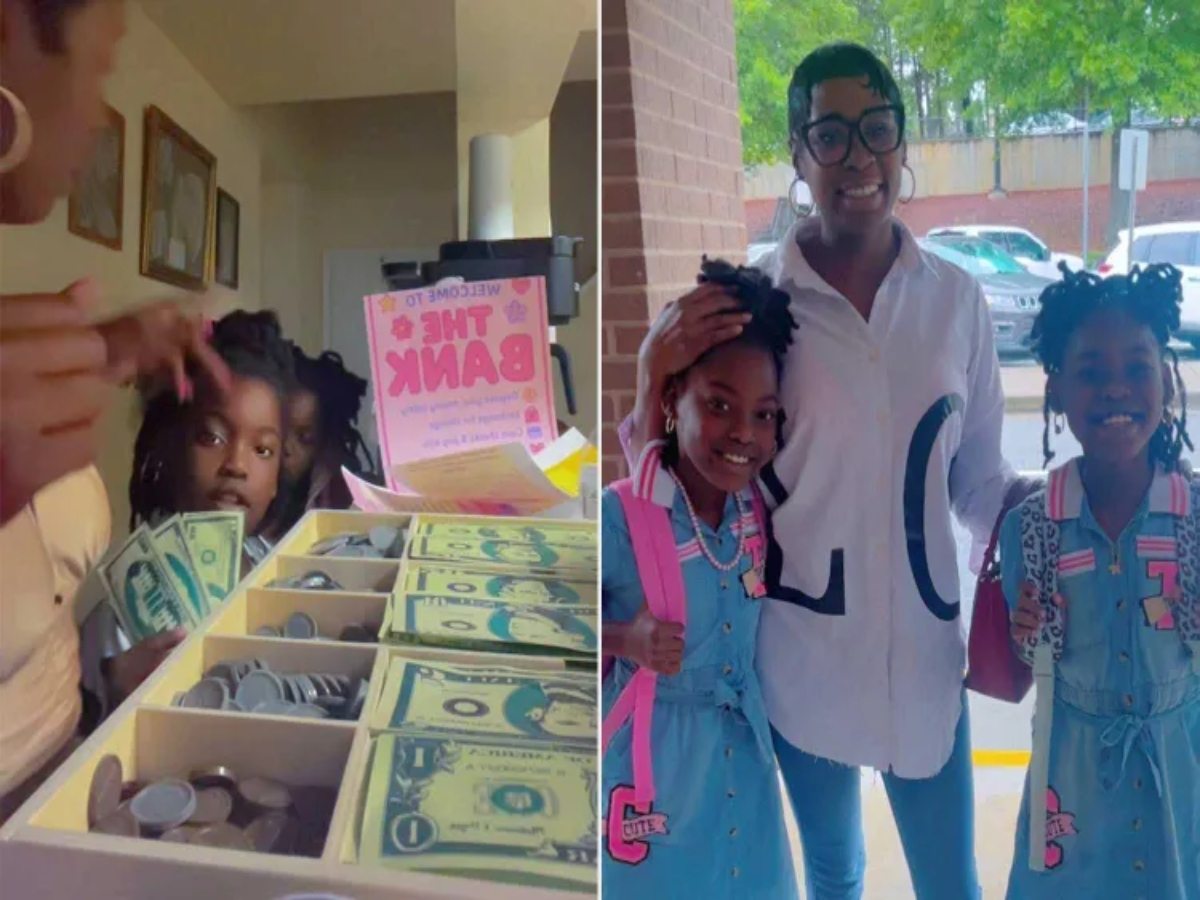LaToya Whitfield, a mother of 9-year-old twin daughters, Grace and Autumn, has implemented an unusual financial education system.
A month ago, Whitfield began requiring her daughters to contribute to family rent and utilities. This decision stemmed from the girls requesting expensive dinners out twice in a week.
Whitfield, a 38-year-old HR recruiter and owner of a custom T-shirt business in Atlanta, told SWNS, “I asked the girls what they wanted for dinner, and they said hibachi, which can cost a little pretty penny.”
READ ALSO: How this mom and daughter pushed each other to graduate from HBCU together
“So I told the girls I didn’t have any more hibachi money this week and I would have to sell more T-shirts or something else in order to make the money,” she continued. “One of the girls said, ‘Didn’t you just get paid?’ and I thought, ‘Oh, that’s how you think this works.’ “
Whitfield, wanting to teach her twin daughters, Grace and Autumn, about money and hard work, whipped up a lease on Canva. This document stated that the girls would need to pay $80 for rent, $10 for electricity, and $5 each for WiFi and gas.
To help them pay their bills, the twins get their “paycheck” every Friday, which they cash at the household “bank” before handing over their payments to their “landlord” mom to cover their bills.
If they fail to pay, they face “eviction” — in the sunroom in their home, which Whitfield rebranded as “the streets.” The girls are fined for such things as not cleaning up after themselves or having a messy bedroom.
On the flip side, Grace and Autumn can earn rewards for good grades and positive behavior.
If they don’t pay up, they get “evicted” to the sunroom, which their mom, Whitfield, hilariously calls “the streets.” They also get fined if their rooms are messy or untidy.
Meanwhile, Grace and Autumn can earn rewards for doing well in school and behaving themselves.
“I just want to drop the seed inside of them for all of the lessons that they are learning during this time,” Whitfield said of the family’s payment system.
Whitfield’s daughters are showing great results from her strategies, indicating overall improvement and a promising future.
“The girls are very responsible and self-sufficient,” the proud mom said. “They can cook on a gas stove by themselves and deep clean their bathrooms by themselves. They even keep track of their own grades.”
Whitfield hopes her daughters will use this money and life lessons when they’re grown, so they’ll be financially responsible and appreciate the value of money.
“I hope that this is something that will pop in their mind when they get older and they have to start making these decisions on their own,” she said. “I am hoping that not only they will learn, but that they will remember this experience forever.”










